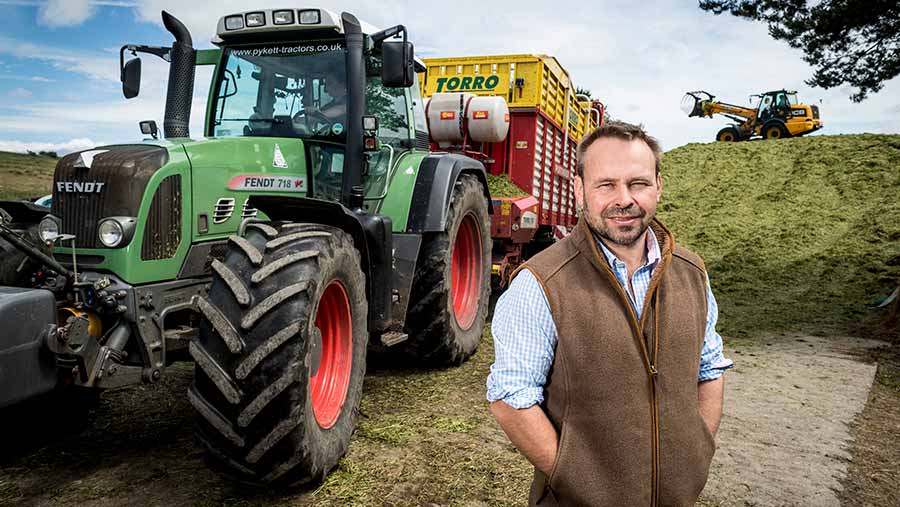Farmer Focus: Relief as all winter feed safely stored
 Simon Bainbridge © Jim Varney
Simon Bainbridge © Jim Varney We have finally finished our harvest. The organic oats were combined, and all has been safely gathered in.
The children were delighted to see two-tracked combines with 35ft headers turn up to do the job.
Perhaps a bit excessive for only 11 and a bit hectares, but rain was forecast later. It’s a real relief when you finally get all the winter feed in the store.
Our winter feed regime is kept very simple. We only feed red and white clover with high-sugar grass silage, lucerne, pitted wholecrop – made up of vetch, barley or oats – undersown with red clover, high-sugar grass and oats.
Protein is the driving force, but we add a few rolled oats to the growing/finishing rations to make the best use of it.
See also: Eggs diversification scheme gets under way
We were host to a group of 24 Turkish vets and animal scientists a couple of weeks ago.
They were visiting to see what we do on the farm – our three-legged stool of animal health, genetics and nutrition (take away one leg and it all falls over). It was great to see their interest in our farming system.
In the next couple of weeks, we are playing host again to a training session for a group of land agents hoping to pass their agricultural valuer exams.
See also: Government should buy British produce
I attended a breakfast meeting with our local MP last week.
We were asked what we wanted for an agricultural policy. The problem is that farmers have been told what to do for so long. We were all guilty of not necessarily knowing exactly what we wanted.
If the government wants cheap food, they will have to provide a robust support system.
If they want farmers to be paid a fair price for their toils without support, then we must become more protectionist.
What’s clear to me is we can’t have one set of rules for farmers here and then bring in food produced to a different set or no set at all.
The question is whether that’s clear to the government.
Simon Bainbridge runs a 650ha organic farm in Northumberland alongside his wife Claire and his parents. With 150 suckler cows and 1,500 breeding ewes, healthy maternal livestock and quality feed are priorities.
